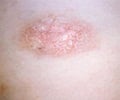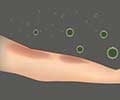The raw sewage dumped straight into the Mediterranean has failed to cure Gazans' itch for the beach and many in the Palestinian enclave brave nasty rashes for a dip in the polluted sea.
The raw sewage dumped straight into the Mediterranean has failed to cure Gazans' itch for the beach and many in the Palestinian enclave brave nasty rashes for a dip in the polluted sea.
The pollution is largely blamed on Israel's crippling two-year embargo of the Hamas-run enclave, which has hindered the upkeep of infrastructure but also left Gazans with little else to do in their free time but head to the beach."I can see the sewage water, but what can I do," asks Mahmud Diab as he emerges from a plunge in the brackish waters of Gaza City's fishing harbor.
"I get itchy and an ear infection each time I swim, but that doesn't stop us from coming here to swim and have fun," he says.
Local authorities list the harbor as among the most polluted areas along the coast, but Diab and his friends are unfazed.
Others have no choice but to brave the waters. Fisherman Ismail Rahmi admits "the sea is very polluted" but says he depends on it for his livelihood.
Every day some 20,000 cubic meters (706,000 cubic feet) of untreated wastewater is dumped into the sea, according to Munzer Shiblaq, who heads the Gaza Strip's water authority. "Even the sand is polluted."
"The problem is all the more serious as the most polluted zones are concentrated in the Gaza City area, where the demographic density is highest," Shiblaq says.
Mahmud Daher, of the World Health Organization, says a dip in Gaza's polluted waters can cause skin diseases, ear or eye infections and digestive troubles.
"The population needs to be made aware of these risks so that people will be more careful, but without provoking panic," he says.
Doctor Juma Saqaa believes the situation is even worse, and warns of the risk of "severe illnesses that could lead to death, such as meningitis, which can can transmitted in polluted waters."
Israel and Egypt have prevented the import into Gaza of all but basic humanitarian goods since the Islamist Hamas movement, which is pledged to the destruction of the Jewish state -- violently seized power in June 2007.
The blockade prevents the import of the pipes and spare parts necessary to repair the sewage system, which Israeli authorities say could also be used to construct homemade rockets to be fired on the south of the country.
The pollution has not had any major impact on Israel's shores despite the prevailing ocean currents, but Israeli scientists have noticed greater concentrations of jellyfish and higher level of nutrients near the border.
"The sewage is bad for the environment because it decreases oxygen and deteriorates the whole living cycle," says Rani Amir, the director of the marine and coastal division of Israel's environment ministry.
"If it continues to flow like this for a long time, for several years, it will have some kind of influence on living creatures along Israel's coast."
Meanwhile, on the beach of the Shati refugee camp, a smiling 10-year-old Manal emerges from the water to play ball on the beach with her friends.
"It's not that bad if the sea is polluted and someone gets sick. Exams are over and we want to have fun like other children," she says.
A group of women sporting long dresses and veils keep a watchful eye on the girls. "I promised to take her to the sea after exams," Manal's mother Um Mohammad says. "I hope she won't fall ill."
Source-AFP
SRM
 MEDINDIA
MEDINDIA




 Email
Email









